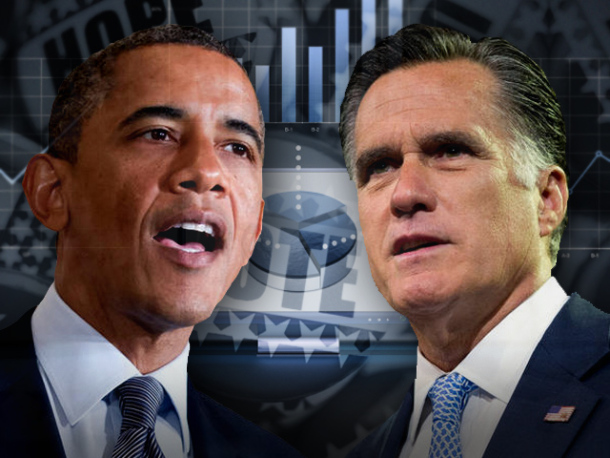Today, Americans elect the man who will be president for the next four years. From a foreign policy standpoint, at least, we’re likely in for the status quo–and not just because President Obama is likely to be re-elected.
Buried in the election eve Gallup poll, which headlines Romney’s microscopic 49 percent to 48 percent lead over Obama among likely voters in a meaningless national survey (America doesn’t elect presidents in a national popular vote; ask Al Gore) is an interesting nugget: while 51 percent of Americans disapprove of Obama’s handing of foreign policy, 52 percent think he would better handle it going forward than Mitt Romney, who gets only 44 percent.
This is the first presidential election in my lifetime, then, where the Democrat had the advantage on national security issues over the Republican. The last time that happened, Lyndon Johnson was running against Barry Goldwater.
Despite that position of strength—and a corresponding weakness on economic issues—Obama and his team have avoided mentioning foreign policy entirely, aside of course from constant reminders that Osama bin Laden was killed on Obama’s watch. For that matter, so has the Romney campaign, except for half-hearted hand waving over Obama’s lack of toughness, a longstanding Republican trope that simply doesn’t hold water this time around.
While the third and final presidential debate was ostensibly about foreign affairs, at least half of it was devoted to economic policy. And way too much of the half that was devoted to foreign policy was spent discussing which of the candidates was more pro-Israel and willing to impose the toughest sanctions on Iran.
That international affairs didn’t feature all that prominently in the contest shouldn’t be surprising. Aside from wildly polarizing wars, such as Vietnam and Iraq, Americans rarely devote much attention to the outside world. And that’s especially true in the midst of a lousy economy and general domestic turmoil.
This is rather ironic in that, while presidents have relatively little impact on creating private sector jobs—the thing that Obama and Romney have both spent the most time pledging to do—they have enormous latitude on international affairs. Presidents can and do take the country to war, make decisive diplomatic overtures at key moments, and otherwise tremendously influence America’s position in the world. But they get elected on the basis of who would make the better Mayor of America.
Certainly, it’s not as if there are no major foreign policy issues to discuss. The United States military is in the twelfth year of a war in Afghanistan and seemingly further from accomplishing the mission with each passing day. Iran is inching closer to building nuclear weapons, an outcome that both candidates deem “unacceptable.” The Syrian regime is killing hundreds of its own citizens a day in order to stay in power. American drones are killing “militants” and innocents alike in more countries than you can shake a stick at. Oh, and Europe’s economy may be on the verge of collapse.
Most of these issues have been ignored completely while the candidates have talked about birth certificates, tax returns, who built what, and empty chairs. On Afghanistan, Romney has alternated between accusing Obama of not doing enough to win and agreeing that 2014 can’t come fast enough. On Iran and Syria, Romney has simultaneously adopted Obama’s positions and sniped that the president isn’t tough enough.
If the polls are right, Obama will be given another four years as commander-in-chief without having to face up to the real failures of the first four or explaining what he plans to do moving forward. If we have another “Dewey Beats Truman” moment, Romney will take over on noon next January 20 without having outlined an alternative vision for America’s role in the world. Either way, then, we appear to be in for more muddling through with no strategic vision.
James Joyner is managing editor of the Atlantic Council.
Image: obama-romney-vote.jpg
